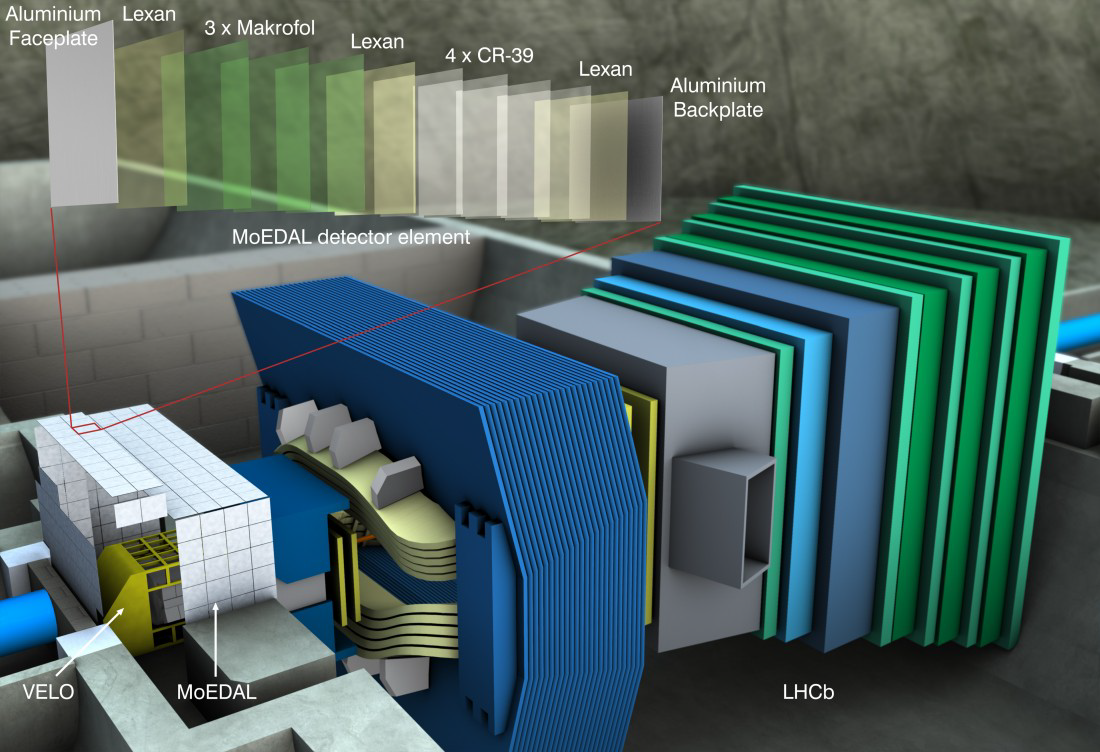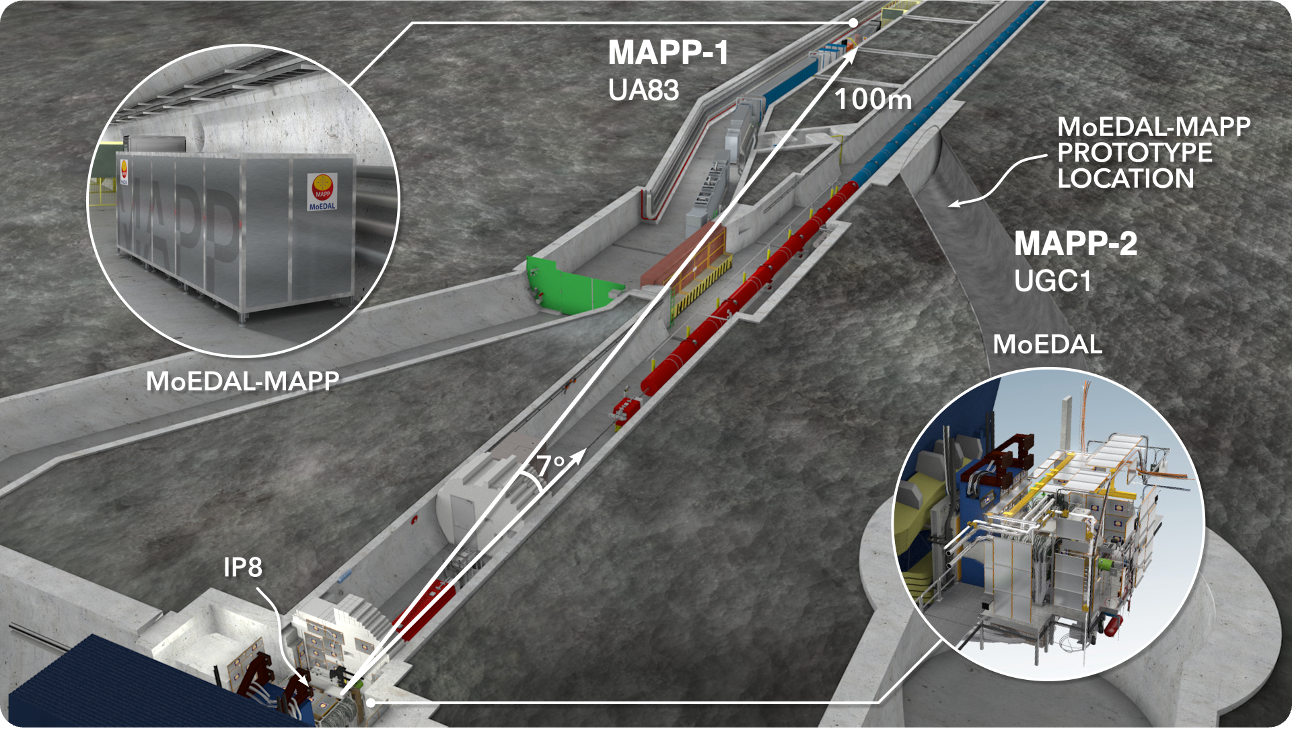The MoEDAL baseline detector

MoEDAL (Monopole and Exotics Detector at the LHC), the 7th experiment at the Large Hadron Collider (LHC), is designed to search for manifestations of new physics through highly ionising particles in a manner complementary to ATLAS, CMS and LHCb. The most important motivation for the MoEDAL experiment is to pursue the quest for magnetic monopoles and dyons at LHC energies. In addition, the experiment is designed to search for any massive, stable or long-lived, slow-moving particle with single or multiple electric charges that arise in various scenarios of physics beyond the Standard Model.
The MoEDAL detector is deployed around the intersection region at Point 8 of the LHC in the LHCb experiment Vertex Locator cavern. It is a unique and largely passive LHC detector comprised of four sub-detector systems. It combines passive nuclear track detectors with magnetic monopole trapping volumes, while spallation-product backgrounds are being monitored with an array of MediPix pixel detectors.
The MAPP extension

The MoEDAL Apparatus for Penetrating Particles (MAPP), an upgrade to the MoEDAL detector, is now now being installed at IP8. It will extend the reach of MoEDAL to the dark matter sector by searching for neutral long-lived particles that decay visibly in the detector and for milli-charged particles giving rise to anomalously low ionization. MAPP Phase-1 (MAPP-1), approved by the CERN Research Board, will collect data during the LHC Run 3, while MAPP-2 will be ready for the High Luminosity phase of the LHC.
The IFIC group
IFIC Valencia officially joined MoEDAL in 2012 and signed the Memorandum of Understanding (MoU) in 2016 together with most of the other MoEDAL institutes. The IFIC group is one of the founding members of the Collaboration and is the sole Spanish participation in the experiment. The group plays a key role in various aspects of the experiment, such as simulation, analysis, theoretical models and management.